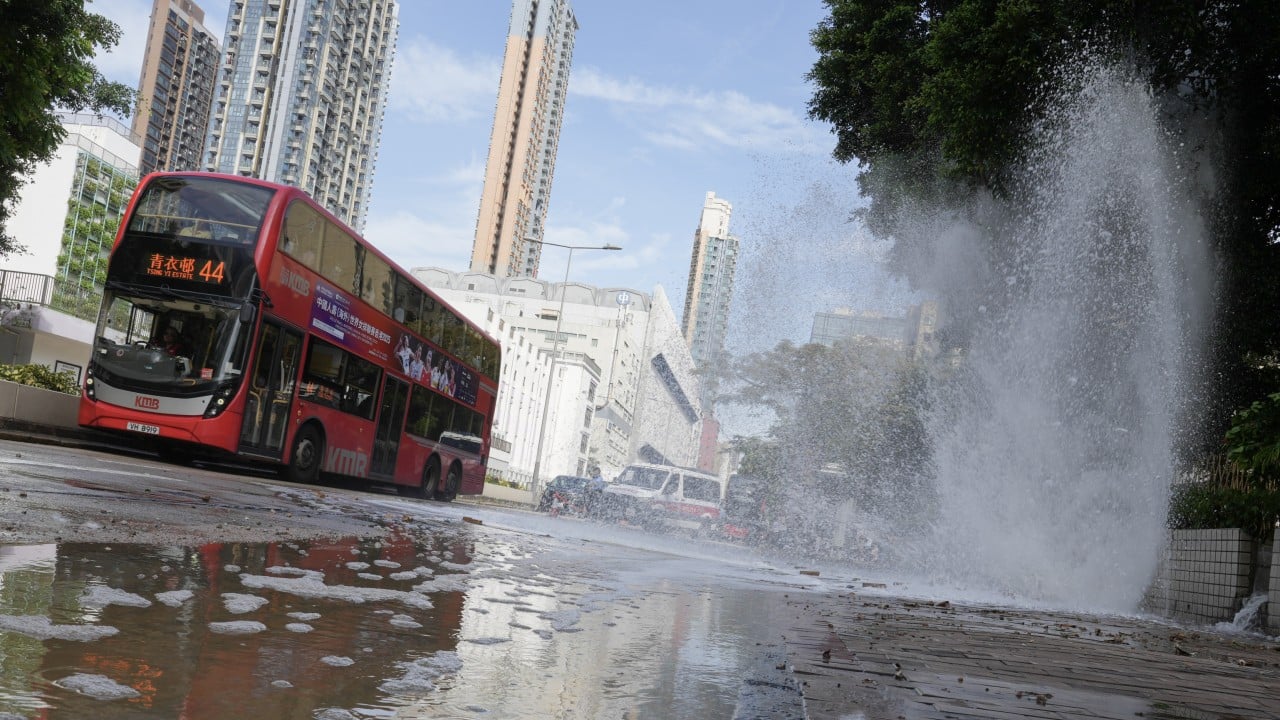
Hong Kong authorities’ hands are tied when it comes to tackling the “ticking time bomb” of the city’s ageing water pipes due to a lack of resources and resistance to disruptions to traffic and supply caused by replacement works, experts have said.
Experts and lawmakers told the Post that the city’s high population density and ageing pipes have caused frequent water main bursts at housing estates in the New Territories in recent months, with incidents occurring at locations in Tuen Mun, Tseung Kwan O and Sha Tin as much of their infrastructure hits the 50-year mark.
Between 2000 and 2015, the Water Services Department (WSD) conducted a citywide replacement and repair programme for 3,000km (1,864 miles) of the city’s 5,700km fresh and salt water mains, targeting pipes that were about 50 years old.
Such works cost HK$23.6 billion at the time, with the number of water main ruptures dropping significantly from more than 2,500 in 2000 to 27 in 2024.
While the number of ruptures has dropped over the years, government data showed the average leakage rate for public housing estates and select private buildings had increased from 10.3 per cent in 2022 to 11.6 per cent in 2024.
The rate compares the sum of the volume of water consumed by all meters in a building against the master meter reading.
The department said its goal was to reduce the leakage rate to 10 per cent or below by 2030 through the digitalisation of water supply services and the expansion of its “water intelligent network” to monitor water flow and pressure.




















